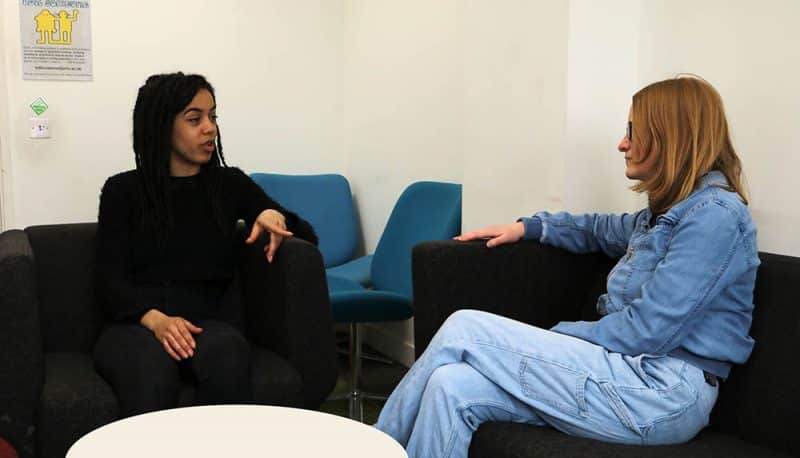A collection of projects, resources and research around internships in the arts by Artquest.

Since 2012, Artquest has researched, led and organised activity around internships in the arts.
Intern Culture: a research report
Our work started with Intern Culture, a literature review of 23 arts internship reports and programmes published from 2009-2011. We reviewed existing arts internship programmes to create a structure for the ‘gold standard’ arts internship. The report was launched in 2012 with a debate on the ethics and purpose of arts internships.
The Intern Culture report included:
- The historical context of internships – coming from the legal and medical professions, where a period of free labour is balanced by high future incomes
- Best practice guidelines collated from a variety of sources
- An exploration of the critical differences between social mobility and social justice
- The business and legal cases for paying interns
- Potential enforcement remedies for interns who have been exploited
- The spread and take-up of paid and unpaid internships
AWP Internships: an internship programme
Building on the Intern Culture report and synthesising best practice, we created AWP Internships. A programme by Artquest supported by UAL’s Widening Participation programme (now Outreach), AWP Internships were open to recent UAL graduates from any course. The programme ran from 2012-2020, when the COVID pandemic made in-person working impossible. Detailed evaluation was carried out after the first, second, fifth and final years.
The internship was structured to be part-time, reflecting the freelance portfolio careers of most arts workers and host organisation working patterns. Hosts were small-scale visual arts organisations in London, originally at the Common Practice group, reflecting the fact that 91% of arts organisations have fewer than 4 employees.
The internship was aimed at graduates from lower socio-economic backgrounds, those least likely to be able to begin a career in the arts without a paid role. Only those who were in the first generation of their family to attend a higher education institution, and who received a maintenance grant while studying, could apply.
Each intern received:
- A paid role for 48 days over 6 months (equivalent to 2 days per week) with work patterns negotiable between the intern and host organisation
- Pay above the London Living Wage
- Induction and orientation from their host organisation
- Clear line management with regular check-in meetings
- Access to an independent mentor, separate from both Artquest and the employer
- Up to 5 days of paid annual leave
- A mid-term review of progress against learning ambitions
- An exit interview and evaluation
- A guaranteed reference for future job and internship opportunities.
The programme was expanded and evaluated each year, listening to hosts and interns to make it fairer and more transparent.
AWP Conversations: audio recorded interviews
In 2019 we commissioned AWP Conversations, a series of conversations between interns, graduates and host organisations on the professional barriers faced by young workers in the arts.
An Exploratory Guide for Hybrid Internships in Small Scale Arts Organisations: a research report and guidance
Restrictions during the COVID pandemic on in-person interaction meant we had to pause the programme. Our main internship supporter also paused their funding. As the pandemic continued, we commissioned research on how to adapt our original internship structure to a hybrid model – where part of the work could be done remotely, and part in-person where restrictions allow.
An Exploratory Guide for Hybrid Internships in Small Scale Arts Organisations was researched and written by Dr Charlotte Webb of the UAL Creative Computing Institute in September 2020. It drew together emerging research on best practice for remote working, including:
- Results from interviews with small-scale arts organisations who have hosted AWP Internships on the changes to their working practice in response to COVID restrictions
- An extensive guide for structuring high-quality internships for remote working
- An overview of the wellbeing and mental health challenges faced by arts workers during the pandemic
- Detailed guidance to inform Artquest’s AWP Hybrid Internships pilot programme
AWP Hybrid Internships: a pilot
In 2021 we ran AWP Hybrid Internships to pilot a new form of internships. Delivered partly remotely, partly in person, these internships could extend opportunities for arts workers entering the sector. A hybrid internship would allow an intern to work more flexibly while still gaining networks, money and experience in a high-quality first job.
Based on the high quality of AWP Internships and learning from our hybrid working research, this pilot tested how arts workers could work in the future.
Despite the success of AWP Internships for almost 10 years, in its various formats, we have been unable to secure funding for the programme in its current form.
The Future of Work
We held The Future of Work, an online panel discussion in February 2022 to discuss the future of work in the creative industries. In the context of Brexit, COVID-19 and the climate crisis, we asked what working in the creative sector might look like in the next 3 to 5 years.
The panel was informed by Artquest’s experience and evaluation of our AWP Hybrid Internships pilot to consider how we can make working practices more flexible and inclusive, and promote diversity, equity and inclusion in the arts.
The panel included art writer and broadcaster Louisa Buck (chair), Dr Dave O’Brien (from the All-Party Parliamentary Group for Creative Diversity’s Creative Majority), Becky Buckman (AWP Internship alumna and AWP Hybrid Internship mentor), and Jai Tyler (evaluator of the AWP Hybrid Internships pilot)
Structuring and working on internships: guidance for organisations and interns
Learning from our internships experience and adding to the research above, we have published:
- A general guides on internships in the arts
- How to structure a high-quality internship in the arts
- Further detail on how to run a hybrid internship
